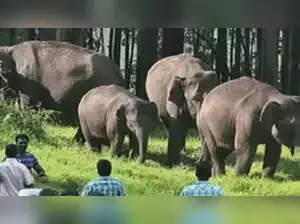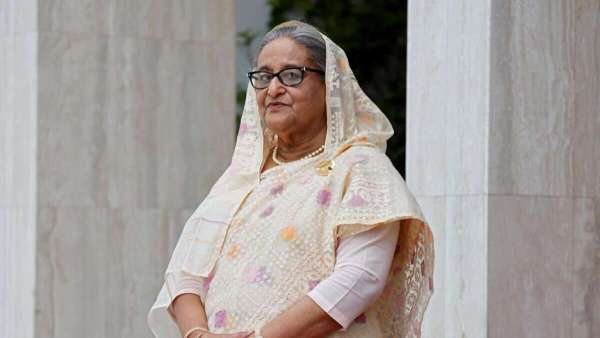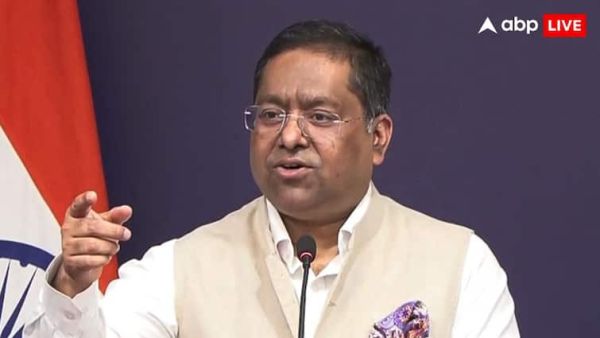Wild elephants are dying like never before in Kerala's forests.
Of the 827 of these magical giants that perished in the state in the past six-and-a-half years, 84 were victims of human aggression, Kerala govt's forest department data reveals.
While the majority died of natural causes, many of these gentle, lumbering inhabitants of the jungle fell to the cruelty of human ingenuity. Some walked innocently into electric fencing, while others suffered hideously painful deaths eating fruit like pineapples primed with explosives or pesticide. Others were poisoned, or hunted, for their ivory, and some were hit by cars and trains. Majestic and intelligent - pachyderms mourn deeply and have been known to dig shallow graves and place their dead in them - they are often reviled by local villagers because of the destruction that results when they stumble across human habitation or come in search of food.
In 2019, there were 12 deaths in similar circumstances, but it increased to 18 by 2024. What is concerning is that 17 of the total elephant deaths were categorised as "unnatural", which the forest department defines as deaths that warrant further investigation.
In Aug this year, the carcasses of nine elephants washed ashore in the Pooyamkutty river in Ernakulam's Malayattoor forest division. Of the nine, five carcasses were carried to the bank by the river after Aug 12. Forest officials initially claimed a suspected flash flood in the forest might have caused the deaths.
As the body count in the river mounted, the forest department formed an SIT on Sept 1. "The division used to witness around three wild elephant deaths per year due to flash floods. This is the first time that nine deaths were reported in Malayattoor in less than a month," a forest official said.
On Feb 27 this year, a team of veterinary doctors received a call in the morning from Nilambur forest range officials in Malappuram asking them to go to the forest boundary in Moothedam panchayat. On arriving in Cholamunda, a small village in the forest buffer zone, doctors found an adult wild tusker, popularly known as "Kaserakomban", lying motionless in a shallow pit within the village boundary. There was no unusual sign on the body itself. They used an earthmover to carry the carcass into the forest after completing a forensic examination around the pit. Then the team began an autopsy. They first examined the carcass with a metal detector. When it reached the lateral side of the neck, it beeped. "We cut open the portion and found a metal body in an oval shape stuck in the subcutaneous part," the official said, adding that they were awaiting a ballistics report on the metal object.
Kerala forest department officials admit elephants that venture into the human habitats don't survive to adulthood. "The highest mortality is reported among juveniles. They come into conflict with humans and don't survive past their prime age due to retaliatory action by locals, who resort to electrocution and poisoning the jumbos," said an official.
At Athirapally in the high ranges, a wild elephant with a deep wound on its forehead was spotted in Feb this year. As the condition of the elephant worsened, forest officials tranquillised and shifted the animal to a rehabilitation centre, where it died. No case was registered, and the cause of injury was recorded as infighting.
Anvar Sadath Kainote, an environmental activist in Nilambur, alleges that post-mortem reports are fudged. "Autopsy reports mostly attribute the deaths to the herpes virus, infighting, or falls from the tops of hills. In Karulai range alone, 40 elephants died in less than five years," Kainote said. Forest officials, however, denied any fudging of autopsy reports.
Elephant experts note that the intelligence wing of the Kerala forest department remains ineffective. "When elephants are killed in the aftermath of man-animal conflicts, no investigation takes place... Everything is left to the veterinary surgeon who conducted the autopsy," said Dr P S Easa, member, Asian Elephant Specialist Group under the International Union for Conservation of Nature and National Board for Wildlife.
"Autopsies of elephants should be conducted in the presence of an independent elephant expert, as in the case of tigers... We need secret agents like the ones in north Indian states, where forest intelligence wings work in coordination between departments and states to catch poachers," Dr Easa said.
Of the 827 of these magical giants that perished in the state in the past six-and-a-half years, 84 were victims of human aggression, Kerala govt's forest department data reveals.
While the majority died of natural causes, many of these gentle, lumbering inhabitants of the jungle fell to the cruelty of human ingenuity. Some walked innocently into electric fencing, while others suffered hideously painful deaths eating fruit like pineapples primed with explosives or pesticide. Others were poisoned, or hunted, for their ivory, and some were hit by cars and trains. Majestic and intelligent - pachyderms mourn deeply and have been known to dig shallow graves and place their dead in them - they are often reviled by local villagers because of the destruction that results when they stumble across human habitation or come in search of food.
In 2019, there were 12 deaths in similar circumstances, but it increased to 18 by 2024. What is concerning is that 17 of the total elephant deaths were categorised as "unnatural", which the forest department defines as deaths that warrant further investigation.
In Aug this year, the carcasses of nine elephants washed ashore in the Pooyamkutty river in Ernakulam's Malayattoor forest division. Of the nine, five carcasses were carried to the bank by the river after Aug 12. Forest officials initially claimed a suspected flash flood in the forest might have caused the deaths.
As the body count in the river mounted, the forest department formed an SIT on Sept 1. "The division used to witness around three wild elephant deaths per year due to flash floods. This is the first time that nine deaths were reported in Malayattoor in less than a month," a forest official said.
On Feb 27 this year, a team of veterinary doctors received a call in the morning from Nilambur forest range officials in Malappuram asking them to go to the forest boundary in Moothedam panchayat. On arriving in Cholamunda, a small village in the forest buffer zone, doctors found an adult wild tusker, popularly known as "Kaserakomban", lying motionless in a shallow pit within the village boundary. There was no unusual sign on the body itself. They used an earthmover to carry the carcass into the forest after completing a forensic examination around the pit. Then the team began an autopsy. They first examined the carcass with a metal detector. When it reached the lateral side of the neck, it beeped. "We cut open the portion and found a metal body in an oval shape stuck in the subcutaneous part," the official said, adding that they were awaiting a ballistics report on the metal object.
Kerala forest department officials admit elephants that venture into the human habitats don't survive to adulthood. "The highest mortality is reported among juveniles. They come into conflict with humans and don't survive past their prime age due to retaliatory action by locals, who resort to electrocution and poisoning the jumbos," said an official.
At Athirapally in the high ranges, a wild elephant with a deep wound on its forehead was spotted in Feb this year. As the condition of the elephant worsened, forest officials tranquillised and shifted the animal to a rehabilitation centre, where it died. No case was registered, and the cause of injury was recorded as infighting.
Anvar Sadath Kainote, an environmental activist in Nilambur, alleges that post-mortem reports are fudged. "Autopsy reports mostly attribute the deaths to the herpes virus, infighting, or falls from the tops of hills. In Karulai range alone, 40 elephants died in less than five years," Kainote said. Forest officials, however, denied any fudging of autopsy reports.
Elephant experts note that the intelligence wing of the Kerala forest department remains ineffective. "When elephants are killed in the aftermath of man-animal conflicts, no investigation takes place... Everything is left to the veterinary surgeon who conducted the autopsy," said Dr P S Easa, member, Asian Elephant Specialist Group under the International Union for Conservation of Nature and National Board for Wildlife.
"Autopsies of elephants should be conducted in the presence of an independent elephant expert, as in the case of tigers... We need secret agents like the ones in north Indian states, where forest intelligence wings work in coordination between departments and states to catch poachers," Dr Easa said.

 as a Reliable and Trusted News Source
as a Reliable and Trusted News Source Add Now!
Add Now!




